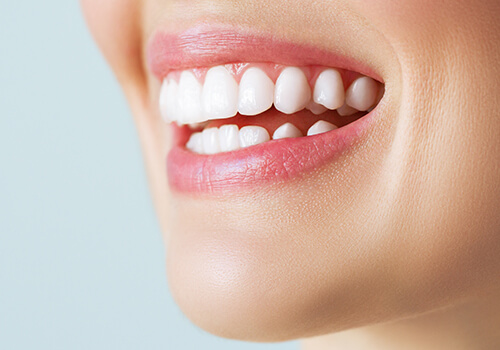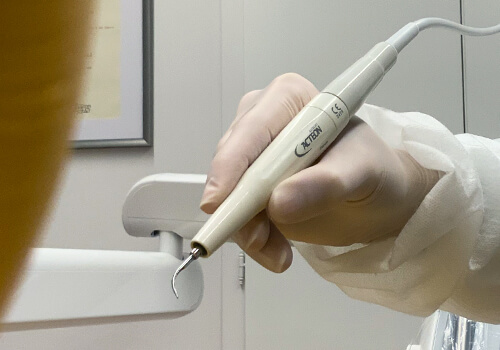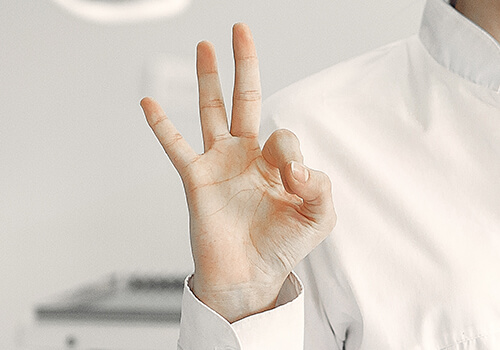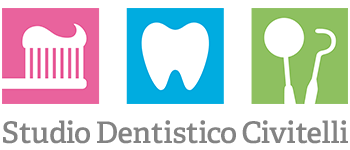Restorative Dentistry
Preserve the tooth health as long as possible
It is a central branch of dentistry which aims to preserve the tooth health as long as possible. It involves various procedures to treat dental caries, infected tissues and reconstruct the tooth.
The treatment of dental decay involves specific therapies to remove the infected tissues of the tooth and fill the cavity created by bacteria with filling materials.
The dental filling is a procedure concerning the branch of restorative dentistry. It aims to preserve the tooth when affected by more or less deep caries or when traumas affect enamel and dentine, thus damaging the dental pulp, the innermost part of the tooth.
The dentist proceeds with the filling procedure only after having removed infected tissues and scrupulously cleaned the area.
It is necessary to treat even milk tooth affected by caries, as soon as little, dark spots appear on the baby’s teeth. If we intervene promptly, the treatments will be less invasive. Moreover, the dentist can reduce the physical and psychological pain of the patient.
Every milk tooth is vital to preserving the space needed by the future, permanent dentition and, for this reason, it is necessary to intervene as soon as the decay starts to affects the teeth.
In case of deep decay, affecting not only the enamel and dentine but also the dental pulp, Restorative Dentistry involves treatments such as the root canal treatment (or devitalization) to solve the problem.
Our Tips

Prophylaxis Cleaning with calcium phosphates
We recommend regular applications of calcium phosphates-based products to maintain the correct enamel mineralisation and prevent caries, white spots, sensitive gums etc., especially during childhood.

Fill up tooth grooves with sealants
The OMS and the Department of Health recommend sealants to fill up the grooves in permanent molars and premolars to guarantee a better cleaning of children’s teeth occlusal surface and prevent the risk of bacterial infiltration and decay.
This procedure is painless and safe but must be carried out according to the correct timing of intervention.
The dentist will guide you in choosing the right moment to carry out this important form of prevention.

Periodic checks
We recommend at least six-monthly visits and professional hygiene sessions.
